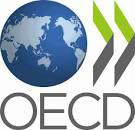Rich have more influence than poor over tax reform

Rich countries and multinational companies seem to have had more influence over international efforts to stop them dodging tax than many poor countries, Christian Aid warns today.
Rich countries’ club the Organisation for Economic Co-operation and Development (OECD) has spent the last year working on ways to crack down on multinationals’ tax avoidance and evasion. But so far the exercise has produced little of use to poor countries, which suffer worst from the abuse.
“The results of the OECD’s project so far suggest that rich countries and multinationals may have had more influence over it than many poor countries,” said Toby Quantrill, Principal Economic Justice Adviser at Christian Aid.
“This seems perverse, given that the OECD is supposed to help countries catch up with multinationals – not give in to their demands. Multinationals’ tax dodging tactics are draining billions from the services we all need. It’s time to focus far more on the needs of developing countries and less on the interests of multinational companies and the rich countries that host them.”
The OECD has committed to increasing the participation of poor countries in the process and this is certainly a very welcome step. But the fact remains that the process overall does not focus on issues which are of greatest importance to poorer countries, such as the pressure to offer large tax breaks to companies in a damaging ‘race to the bottom’.
Christian Aid’s warning about the excessive influence of big companies on the OECD tax project comes as G20 countries’ heads of state prepare for their annual meeting in Brisbane, Australia. During 2013, both the G20 and G8 gave the OECD two years to find reforms to counter multinationals’ tax abuse.
One year has now elapsed and to mark it, Christian Aid is publishing a new assessment of the OECD BEPS project’s conclusions so far. (BEPS stands for ‘base erosion and profit-shifting’ – or corporate tax dodging.) The assessment: We Still Haven’t Found What We’re Looking For, acknowledges that the existence of the BEPS project is good news. “It represents long overdue acceptance that the status quo cannot be maintained,” says the report.
However it also warns that many of the reforms proposed by the OECD will do little to help poor countries. “Those aspects of the [BEPS] action plan with the greatest potential benefit for developing countries have moved particularly slowly, while issues that have been identified as being of key importance by developing countries are not included at all,” it says.
One example of this is a reform called public country-by-country reporting. It would require multinationals to publish financial information such as their profits made and taxes paid separately for every country in which they operate. The information would help tax authorities catch up with companies dodging tax by shifting profits into tax havens.
Public reporting of this sort would be hugely helpful to tax authorities in all the countries in which a particular company operates, because they would easily be able to see the financial data for their own country. However, Christian Aid understands that public country-by-country reporting has not even been discussed at the BEPS talks, and that multinational companies have lobbied against it.
Christian Aid estimated in 2008 that every year, multinational tax evasion deprives poor countries of around $160 billion. This amount is disputed by some but subsequent attempts to gauge the size of the problem all suggest it is significant and that our figure is unlikely to be too wide of the mark.


















